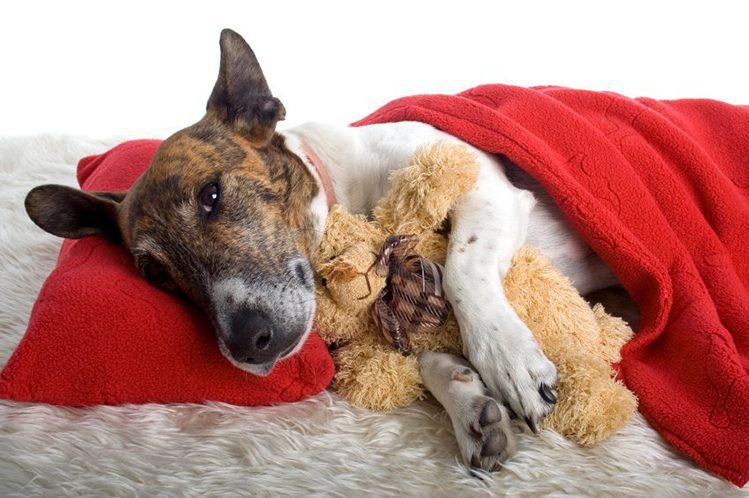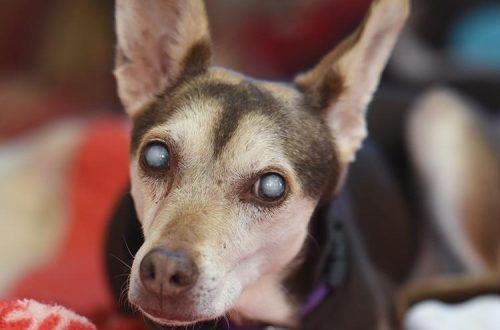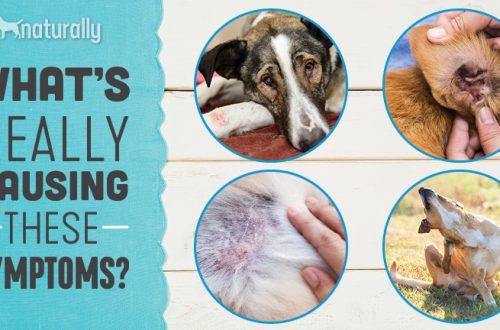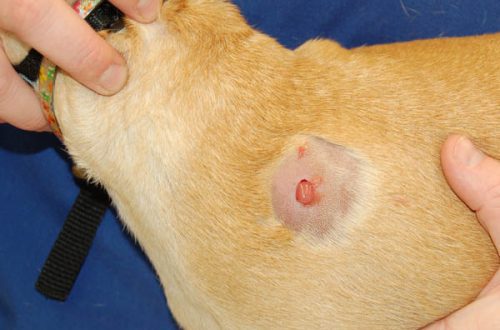
dog digestive upset
Digestive disorders are quite common in dogs. So often that many owners do not attach importance to them. However, periodic stool disorders, nausea and other symptoms always indicate a malfunction in the body, which can lead to the most serious consequences. What factors provoke disorders and what serves as their prevention? Let’s talk about this in our article.
Diarrhea is one of the top reasons for bringing a dog to the vet. The course of diarrhea is painful for the animal and debilitating for the body as a whole. Therefore, it is not worth ignoring the signs of even a mild disorder. It is better to play it safe and visit a specialist as soon as possible so that he can diagnose and prescribe the appropriate treatment.
Diarrhea can be a symptom of serious diseases occurring in the body, which previously the owner of the dog might not even be aware of.
Cases of digestive disorders in dogs increase during the holidays. When the table is set at home, many pets do not take their eyes off it and do everything to get a tidbit. Some work out their acting talent and demonstrate murderous-hungry looks. Others storm the table and steal the yummy while the owner is not looking. Still others use both methods.
Not all owners can refuse a pet on a holiday. Many give “indulgence” and treat the pet with something “such”. Unfortunately, this gesture is not useful and in many cases turns into a problem. Due to unsuitable and unusual food, the dog starts diarrhea – and now the owner, instead of enjoying the holiday, walks the pet 10 times and looks for a veterinarian …
Feed your dog only healthy dog treats. Forbid guests to feed the dog from the table.
Violation of the stool (constipation, loose / mushy stools, in some cases containing blood and mucus);
vomiting;
bad smell when breathing;
increased thirst;
loss of appetite, refusal to eat;
sluggish behavior, apathy;
weight loss;
bloating;
spasms, pain;
temperature rise.
Note that a disorder is not necessarily accompanied by a complete list of symptoms. 2-3 listed signs can also point to it.
The most common causes of diarrhea are:
unbalanced nutrition;
low-quality foods in the diet;
sudden or frequent changes in diet;
unsuitable food;
rotten food, poisonous chemicals and plants;
various diseases of the gastrointestinal tract;
diseases of the liver and pancreas;
foreign objects;
neoplasms;
gastrointestinal trauma;
systemic pathologies (renal failure, babesiosis, etc.);
- parasite infection.

The basis for the prevention of digestive disorders is a high-quality balanced diet that is suitable for a particular dog.
Feed your pet in accordance with the recommendations specified by the manufacturer, because. an overabundance of nutrients and / or their imbalance can lead to damage to organisms. Make sure your dog has access to fresh water at all times. If you plan to use an all-natural diet or combine it with industrial feeds, consult a veterinary nutritionist. It will help you create the right diet for a particular pet. Do not change the line of ready-made feeds unless absolutely necessary, and in which case, smoothly transfer the dog to a different diet.
Don’t let your dog pick things up from the ground outside. If your dog doesn’t know how not to pick up, use a cage muzzle. Keep animal plants away and use safe cleaning products.
But what measures to take when a disorder occurs? How to help a dog here and now?
In no case do not self-medicate. Do not buy pills for a dog without a doctor’s recommendation, do not transfer it to a “healing” diet or fasting: incorrect treatment will only aggravate the situation.
Adsorbents can serve as a first measure if poisoning has become the cause of the disorder. However, they will have an effect only in the first 1-2 hours after the poisoning agent enters the body. After that, you need to contact your veterinarian to draw up a further plan of action.
If your dog’s digestive disorders are not a single occurrence, but a periodic occurrence, be sure to consult a veterinarian about this issue. He will help determine the causes, provide appropriate recommendations and, if necessary, prescribe treatment.
Remember that the dog’s digestive system is a very sensitive organ that is responsible not only for the digestibility of food, but also for many other body functions. The negative impact on the body of symptoms that occur in cases of violation of the optimal functioning of the gastrointestinal tract leads to a number of serious consequences. Therefore, it is very important to solve the problem in a timely manner.
Stay healthy and take care of your pets!
The article was written with the support of an expert: Mac Boris Vladimirovich, veterinarian and therapist at the Sputnik clinic.






